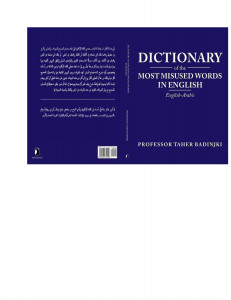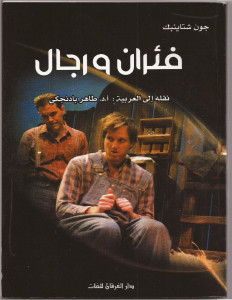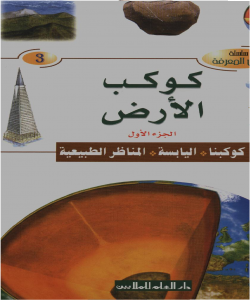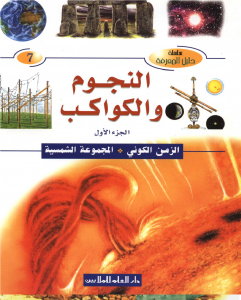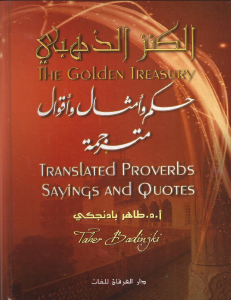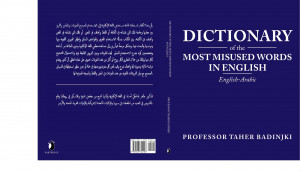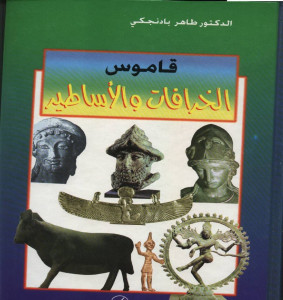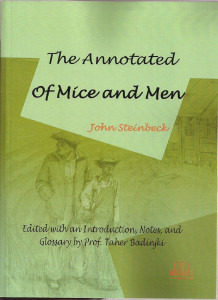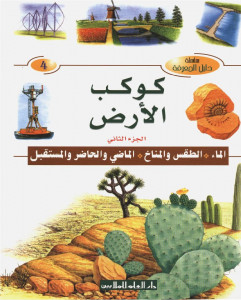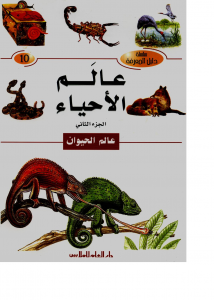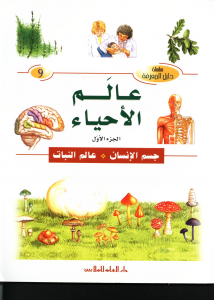
About University
Al-Zaytoonah Private University of Jordan (henceforth, Al-Zaytoonah) was established in 1993 after receiving its license and general accreditation by Decision No. 848 on March 6, 1993. Instruction began on September 6, 1993, and since then Al-Zaytoonah has witnessed ... Read moreAcademic & Administrative Staff
There are 300 faculty members of various ranks distributed among the six faculties of the University, and 80 teaching and research assistants and lab technicians. In addition, there are 210 administrative employees and 260 workers.Al Zaytoonah University of Jordan
Blog
Books
Thursday 24, 2016
Research Papers
Thursday 24, 2016
الرتب الأكاديمية
Friday 7, 2015
أستاذ ، تم الحصول عليها بتاريخ 8 / 6 / 1997
أستاذ مشارك، تم الحصول عليها بتاريخ 21 / 1 / 1992
أستاذ مساعد، تم الحصول عليها بتاريخ 6 / 11/ 1988
مدرس، تم الحصول عليها بتاريخ 6 / 11 / 1986
البحث الجديد عن الروائي الانكليزي الشهير تشارلز ديكنز صدر منذ يومين Dombey and Son: An Inverted Maid’s Tragedy وهو منشور على موقع المجلة لمن يرغب بقراءته أو الاطلاع عليه Advances in Language and Literary Studies ISSN: 2203-4714 Vol. 6 No. 3; 2015 Australian International Academic Centre, Australia
Wednesday 20, 2015
Dombey and Son: An Inverted Maid’s Tragedy
Prof. Taher Badinjki
Department of English, Faculty of Arts, Al-Zaytoonah University
P O box 1089 Marj Al-Hamam, Amman 11732, Jordan
Tel:00962775203424 Email: tbadinjki@homail.com
Abstract
Ross Dabney, J. Butt & K. Tillotson, and others think that Dickens revised the role of Edith in the original plan of Dombey and Son upon the advice of a friend. I tend to believe that Dickens’s swerve from his course was prompted by two motives, his relish for grand scenes, and his endeavour to engage the reader’s sympathies for a character who was a victim of a social practice which he was trying to condemn. Dickens’s humanitarian attitude sought to redeem the sinner and condemn the sin. In engaging the reader’s sympathies, Dickens had entrapped his own. Both Edith and Alice are shown as victims of rapacious mothers who sell anything, or anybody for money. While Good Mrs Brown sells Alice’s virtue and innocence for cash, Mrs Skewton trades on Edith’s beauty in the marriage market to secure fortune and a good establishment. Edith and Alice’s maturity and moral growth and their scorn and anger at their mothers’ false teaching come in line with public prudery. Moreover, their educators in the principles of Mammonism have not succeeded altogether in stifling their innate feminine tenderness and capacity for affection, the thing that draws them near their reader’s heart and wins them love and sympathy.
Keywords: Money, transaction, victims, saleable, Mormonism, greedy, rapacious.
1. Introduction
Dombey and Son (1848) is about a callous world in which human beings become saleable objects and business transactions dominate both public and private affairs. The fever of money has annihilated love and sincere feelings not only among many members of such a world, but even between wife and husband. It has made marriage an auction where women were sold to the highest bidder and turned an entire society into a commercial wasteland filled with dishonesty and impotence. It is the world of Capital, the world of industrial and commercial enterprise where people like Dombey become dehumanized in their struggle for more money and more power while the kind old-fashioned trader Solomon Gills cannot keep up with the changing times and is ruined.
Dombey has put his faith in Mammonism and become one of those whose hell, (according to Carlyle), is the hell of “not making money” (Past and Present 125). He tells Paul that money “can do anything” and adds that anything includes everything (Dombey and Son 94, hereafter D&S). Money brings him “independence, flattery, self-sufficiency” and even “emancipation from the needs and solaces of love” (Dyson 103). The syllables into which Dombey divides his name suggest that Dickens may be playing with an ironic pun to describe Dombey’s alienation from the natural organic world and from the feelings and sensibilities that are proper to it1. Such an interpretation is reinforced by Dickens’s frequent references to him as a statue or “a man of wood without a hinge or a joint” (D&S 367). Dombey is not the only Scrooge of this world. Mrs Skewton and Good Mrs Brown are other examples of how the sin of worshipping the false god Mammon has crept “from high to low like the greed-engendered cholera coiling from the slums into lordly homes” (Johnson 634) and how motherhood is perverted by the cash nexus. In their lust for money and through their lack of moral sensitivity, Mrs Skewton and Good Mrs Brown drag their daughters “into guilt and shame which they themselves are incapable of feeling” (Dabney 57). They stand as predecessors of Lady Carbury and Georgiana Longestaffe in Anthony Trollope’s The Way We Live Now, in the way that they too are tainted by their wish for money.
2. Discussion
Alice Marwood is the victim of a rapacious mother who sells anything, or anybody, for money” (D&S 692). Seeking money is her only aim whenever she makes her appearance in the book and from whomever she meets, even if it is only Rob the Grinder. She makes “a sort of property” (D&S 717) and a source of cash of Alice’s merits and good looks. Her avarice has turned her into a witch who, after dissolving her social obligations and violating the moral laws, has nothing left but “a heap of rags” and “a heap of bones” (D&S 465).
Alice’s seduction is referred to but not with explicitness. It becomes understood that when she was still “a child” under the care of her covetous and poor mother, Alice was made “a short-lived toy” for Carker (D&S 717) who after seducing her, flung her “aside more cruelly and carelessly than even such things are” (D&S 717).
Dickens’s description of Alice in the howling wind and pelting rain, dressed in wet, shabby clothes suffering from hunger, cold and poverty; gives us a successful if conventional picture of the street woman who trades on her body and who offers sex for money. Alice’s initial appearance occurs after a miserable life in which, she tells Harriet, “evil courses, and remorse; travel, want, and weather; storm within and storm without; have worn [her] life away” (D&S 782). She has suffered twelve years of continued degradation in the penal colony after being transported for robbery, a crime she was concerned “in every part of it but the gains” (D&S 717). She comes back full of anger, rage and scorn against those who ruined her and drove her to a wretched life of misery and suffering.
Good Mrs Brown does not find in the returning Alice her handsome gal. Alice is no longer the saleable child. She tells her mother “I went away a girl, and have come back a woman” (D&S 468). Alice’s maturity is even accomplished by a certain moral growth. She spurns Harriet’s in revulsion against her mother’s principle that “money is money, whoever gives it” (D&S 474). She expresses scorn and anger at her mother’s false teaching and faces her with the tale of ruin and degradation into which she sold her. She expresses her anger at Carker, the tool of her destruction: “if I could have travelled, weary and lame, over the whole world, to stab him, if I could have found him in a lonely place with no one near”( D&S 718). She helps Dombey in tracing and finding him motivated by a desire for revenge rather than the expectation of some pecuniary reward. She tells Dombey: “I have as good cause for my anger as you have for yours, and its object is the same man”(D&S 692). In restricting her to these sketchy appearances, Dickens stresses her anger without having to treat her in depth. She is conventional in part because she takes her place in the design of the novel. But it is true that we are shown little of what it is like to be Alice; there are no “surprises” in her behaviour; her misfortune is functional.
In her anger and desire for revenge, Alice unites with her natural ally Edith, who after a humiliating experience almost repeats the same words: “my anger rose almost to distraction against both [Dombey and Carker]. I do not know against which it rose higher–the master or the man”! (D&S 727). Despite the difference in their social status, Alice is used as Edith’s mirror image. Her fall and subsequent resort to prostitution serve as background parallels through which Dickens can comment on Edith’s mercenary marriage.
Like Louisa Gradgrind in Hard Times, Edith is the victim of a commercial transaction between Dombey and her mother. On the one hand, Dombey, who is looking for a good breeder to provide him with a son and heir, and for a fitting ornament to the domestic portion of his empire finds in the available Edith all the required physical and social accomplishments. She is undeniably handsome; she has aristocratic connections, and she has already borne her first husband a son. On the other hand, Mrs Skewton finds in Dombey’s money and position “a great catch” for herself and her compliant daughter.
Mrs Skewton’s manipulation of Edith parallels the treatment of Alice by her mother, Good Mrs Brown. In both cases, the daughter is made an easy victim of her mother’s avarice and sordid calculation. While Good Mrs Brown sells Alice’s virtue and innocence for cash, Mrs Skewton trade s on Edith’s beauty in the marriage market to secure fortune and a good establishment. By linking the top and the bottom of society, Dickens shows that moral decay is running its course on every level in the world of Dombey and Son, from “the stately mansions of the aristocracy on Brook Street and the pineries of Mr. Dombey’s banker-associates down to the rag-filled hovel of Good Mrs Brown” (Johnson 635).
Dickens affords his readers more than adequate opportunity for comparing Edith to a prostitute. By referring to her marriage in purely economic terms like “bargain” and “auction” (D&S 381-2), and by describing her as “bought”, Dickens suggests that Edith is treated as no more than a marketable commodity. Even she herself comes close to calling herself a prostitute. In her reply to her mother’s question “what are you?”, Edith answers: “I have put the question to myself … and God knows I have met with my reply” (D&S 418).
One must return to the elaborate parallel constructed between the two pairs, Mrs Skewton and Edith on the one hand, and Good Mrs Brown and Alice on the other, to find the best evidence of comparing Edith to a prostitute. The comparison is emphasized by such devices as chapter heading: “Another Mother and Daughter”; the role of Carker, who has been the agent of Alice’s degradation scheming to be Edith’s; the blood relationship by which we know that Edith is “Alice’s first cousin” (D&S 784); and finally, the narrator’s comment on Alice’s rejection of the money given by Harriet Carker:
Were this miserable mother, and this miserable daughter, only the reduction of their lowest grade, of certain social vices sometimes prevailing higher up? In this round world of many circles within circles, do we make a weary journey from the high grade to the low, to find at last that they lie close together, that the two extremes touch, and that our journey’s end is but our starting-place? Allowing for great difference of stuff and texture, was the pattern of this woof repeated among gentle blood at all?
Say, Edith Dombey! And Cleopatra, best of mothers, let us have your testimony!
(D&S 477)
The parallel between Alice and Edith implies that both are in the same situation. Edith’s marriage is no better than Alice’s prostitution. The difference in social status, according to J. Butt & K. Tillotson “is as nothing to the identity of the situation”; and they add that “Dickens evidently asked, like his contemporary Florence Nightingale: The woman who has sold herself for an establishment, in what is she superior to those one may not name?” (104).
While Dickens clearly condemns Edith’s marriage of convenience, he labours to show that it was forced on her. Before her marriage to Dombey she tells her mother:
There is no slave in a market: there is no horse in a fair: so shown and offered and examined and paraded, Mother, as I have been, for ten shameful years …. I [have] been hawked and vended here and there, until the last grain of self-respect is dead within me, and I loathe myself? (D&S 382).
The death of self-respect combined with the weariness of her degradation and her realization that she is too far gone to try to turn back contribute to her passive acceptance to marry Dombey. She knows that Dombey has bought her in “the auction” (D&S 382), but her only consolation is that she made no effort to please him or catch him, and this “is supposed to mitigate her responsibility” (Dabney 57).
The moral difference between Edith and Dombey is that “Dombey sees nothing wrong with making their marriage a bargain, an essentially commercial relation” (Dabney 57), while Edith, who is basically a good person, feels disgusted by the whole idea and is always at war with herself. Her pain becomes clear when Dombey reminds her of the terms of the contract and of her duties towards him. Dickens’s sensitivity to the public taste and his reticence about what might be offensive to the family circle, made him mask the real nature of Dombey’s request. If it is looked at from the domestic background which Dickens gave to it, it becomes clear that Dombey is asking Edith to fulfil her sexual obligation towards him. He tells her “I require it as my right. In short I will have it … nobody will be surprised, either at its being required from you, or at your making it.–To Me–To Me!” (D&S 542). Horrified by Dombey’s public request and insult, Edith pleads a separation in which “some friendship, or some fitness for each other, may arise between us” (D&S 545), but Dombey refuses to consent to her proposal and insists on her submission and acquiescence with an ultimatum: “I have stated my ultimatum, Madam, and have only to request your very serious attention to it” (D&S 545). Dombey’s insulting request adds to Edith’s degradation and reaffirms her belief that in her marriage to Dombey she has been reduced to the level of a bought prostitute. Driven to despair, she determines to destroy her own life in revenging herself on Dombey and his tool Carker.
A. O. J. Cockshut attributes Edith’s willingness to run away with Carker and her refusal to become his mistress to the conventional demand of public prudery, and to Dickens’s own “guilt about his unstable sexual temperament” (106). I find it difficult to agree with Cockshut, for I believe that Edith’s flight is prompted by a moral revulsion against the “adulterous” situation in which she finds herself, as well as her vengeance on both Carker and Dombey. For her, Carker is both a means and an end. By running away with him and denying him his sexual reward, Edith can strike at least a two-fold blow: she can take revenge on Dombey with the same tool that he has chosen for her humiliation, and can bring shame and degradation on the sinister Carker, who was viciously laying his snares f or her. At Dijon she speaks of the real motive behind the elopement and faces him with his baseness:
From my marriage day, I found myself exposed to such new shame–to such solicitation and pursuit … from one mean villain …. This shame, my husband fixed upon me; hemmed me round with …. from the hour when I first saw, and hated you, to now … you have been a loathsome creature to me which has not its 1ike on earth … I was lost; I had given you the power to traduce my name …. I struck a blow that laid your lofty master in the dust, and set you there, before me, looking at me now, and knowing what I mean …. I have my triumph. I single out in you the meanest man I know, the parasite and tool of the proud tyrant (D&S 724-9).
Forster tells us that in the original plan for the novel, Dickens intended Edith to become Carker’s mistress and die, but on the objection of his friend Jeffrey “who won’t believe (positively refuses) that Edith is Carker’s mistress” (34), Dickens decided to change it. In his number-plan for No. XVII, he wrote “Edith not his mistress” (Butt &Tillotson 109) and in his letter to Forster on 21st December 1847 he wrote “what do you think of a kind of ‘inverted Maid’s Tragedy’, and a tremendous scene of her undeceiving Carker, and giving him to know that she never meant that”2. The “inverted Maid’s Tragedy” is that she will apparently be struck with remorse before she becomes Carker’s mistress. Ross Dabney thinks that Dickens made the change “partly because of Jeffrey’s intuitions and partly because of his own relish for grand scenes” (56), while J. Butt & K. Tillotson believe that Jeffrey was not the reason for the change but merely the occasion, for “in engaging the reader’s sympathies”, Dickens ”had entrapped his own, and so was ready to welcome one influential reader’s incredulity at Edith’s guilt, as an excuse to swerve from his course” (106). If we accept Butt & Tillotson’s reasonable view, then it becomes necessary to explain why Dickens ever sought to engage “the reader’s sympathies” in the first place for a character who represents a social practice which he was trying to condemn? The answer, of course, lies in Dickens’s humanitarian attitude which sought to redeem the sinner and condemn the sin–a policy which he in collaboration with Miss Burdett Coutts, tried to apply at Urania Cottage. Even more, he is arguing that many women in the sexual context, or the money-market are victims. We may well ask why did not Edith marry some one a little less fearsomely chilling and repellent than Mr Dombey! The answer has to be that she, too, has a function and is denied a true character.
We may even wish to think what would have happened if Dickens had allowed Edith to be successfully seduced by Carker? What would it have made of the novel? It might have broken out of its neat shell of conventions. Edith’ s menace would have been even more evident, her degradation more complete, her excuse less apparent, and Dickens might have twisted the knife more effectually. There was a better novel inside Dickens’s mind than ever found expression in Dombey and Son, especially in all that he has to say and imply of the situation of women.
We may like to think that both Edith and Alice “however degraded, are somehow not to blame: it is their mother’s fault” (Dabney 56), though this belittles the characters through that “somehow”. Both girls show a haughty disregard for their parents’ materialistic values. While Alice throws back the gift given to her by Harriet Carker, Edith turns her back on Dombey’s fortune. When she leaves, she gives full expression to her “regard” for her husband’s wealth. “Thrown down in a costly mass upon the ground, was every ornament she had had, since she had been his wife; every dress she had worn; and everything she had possessed” (D&S 636).
It is not self-regard and pride alone that motivate Edith and Alice. Their educators in the principles of Mammonism have not succeeded altogether in stifling their innate feminine tenderness and capacity for affection. Edith responds to Florence’s affection with love freely given, since Dombey cannot give it. She brings happiness and friendship into the “orphaned” child’s life and protects her against Carker and against her own mother. Her motherly and selfless love draws her near to our hearts and wins her our love and sympathy.
Love stands out as the redeeming power which washes away “scorn, rage, defiance, recklessness” (D&S 782), and softens agitated hearts. Under the angelic influence of Harriet and the force of her love, gentleness and kindness, Alice relents. She dies repentant, hearing the blessed story of Christ’s ministry to “the criminal, the woman stained with shame, the shunned of all our dainty clay” (D&S 785). The proud Edith also seems to melt under the influence of Florence’s loving and kind heart, and is brought to confess the fact of her innocence and demonstrate a positive response to forgiveness: “I will try, then, to forgive him his share of blame. Let him try to forgive me mine!” (D&S 827)
Carker, the seducer, is allowed neither remorse nor repentance. He is presented as a black-hearted monster whose function is to scheme and pervert. He has put his passion ahead of duty and made use of his class privileges to abuse members or the classes above and below him. After seducing Alice, he turns his back on her as if she were “mud underneath his horse’s feet” (D&S 609). He is “the only person in the Dombey’s world whose sexual powers are insisted on. His sensuality is indicated in the description of his house, with its carpet and cushions … too soft and noiseless’, and … prints and pictures” of “voluptuous cast” (Howard, Lucas, Goode 125). He sees in Edith a new prey for his passion and prospective heir to Dombey’s wealth. In his villainous pursuit of money and self-indulgence, he betrays Dombey’s trust and runs away with her which leads him to his destruction. There is no moral awakening for him, only a nightmare of humiliation followed by a violent death.
3. Conclusion
Alice’s change of heart and sincere yearning for repentance, and Edith’s anguished sensibility and her ability to demonstrate a humanitarian selfless love, are intended to show that they are good at heart and to arouse the readers’ sympathy for them. These victims of society’s values appear as “doomed sinners marked by an inexpiable sin: real or symbolic death is the only fate they can hope for” (Basch 220). In her final interview with Florence, Edith says “when you leave me in this dark room, think that you have left me in the grave” (D&S 828).
Edith does not technically commit adultery, she only seems to. She tells Florence:
Florence! … My better angel! Before I am mad again, before my stubbornness comes back and strikes me dumb, believe me, upon my soul! I am innocent (D&S 824).
She does not allow Carker to touch her, and strives to keep her honour intact, yet even seeming to break the marriage bond and running away with another man were crimes which could never be forgiven.
In raising the “fallen woman” question at different levels in class, Dickens was handling what was then an intensely difficult subject. On the one hand, he had to make her situation acceptable to the family circle of readers and to satisfy the literary convention of his time that such a “sin must be expiated in penitence and death, or at least emigration” (Tillotson 65). On the other, he apparently had to be careful not to alienate his readers’ sympathy for her. While Alice’s death washes away her sin, Edith who sinned only in appearance, is doomed to spend the rest of her life in banishment and social ostracism. Though he could not bring her back to respectable society, his final judgement on her is that she possesses “a woman’s soul of love and tenderness” (D&S 827).
References
Basch, F. (1974). Relative Creatures: Victorian Women in Society and the Novel 1837-67, trans. Anthony Rudolf. London: Allen Lane.
Butt, J. & Tillotson, K. (1957). Dickens at Work. London: Methuen.
Carlyle, T. (1872). Past and Present. London: Chapman and Hall.
Cockshut, A. O. J. (1961). The Imagination of Charles Dickens. London: Collins.
Dabney, R. H. (1967). Love and Property in the Novels of Dickens. London: Chatto & Windus.
Dickens, C. (1974). Dombey and Son. Oxford: Clarendon Press.
Dyson, A.E. (1970). The Inimitable Dickens. London: Macmillan.
Forster, J. (1966). The Life of Charles Dickens. London, II.
Howard , D. Lucas, J. Goode, J. (eds) (1966). Tradition and Tolerance in Nineteenth- Century Fiction. London: Routledge.
Johnson, E. (1953). Charles Dickens, 2 Vols. London: Victor Gollanz Ltd.
Tillotson, K. (1962). Novels of the Eighteen-Forties. Oxford: Oxford University Press.
Notes
Note1. Though the stress on the last syllable “bey” might make it ring in Dombey’s ears with the eastern connotation
of governor or ruler, yet the irony lies in the connotation of the first syllable as an adjective. “Dumb”, as in
terms like “dumb-waiter” refers to a senseless device.
Note 2. Dombey and Son inverts The Maid’s Tragedy in more than one way. Evadne, the King’s mistress, rejects her
newly wedded husband from loyalty to the King; whereas Edith uses her seducer, Carker, as a means to
humiliate her husband. Evadne returns to her husband after stabbing her royal paramour; whereas Edith
chooses to live, though her husband is “dead” to her. Quoted in The Letters of Charles Dickens, vol.V,
18Q7-1849, ed. Graham Storey & K. J. Fielding (Oxford 1981), p. 211.
الكنز الذهبي
Wednesday 24, 2014
صدر للدكتور طاهر بادنجكي – الأستاذ في قسم اللغة الانكليزية والترجمة -- كتاب بعنوان “الكنز الذهبي: حكم وأمثال واقوال مترجمة” و يستهل الدكتور طاهر بمقدمة جاء فيها:
ليس ثمة من شك في أن الإنسان منذ بدء الخليقة راح ينظر في الحياة ويفكر ويتأمل في الطبيعة والكون من حوله، وقد عبّر عن ذلك من خلال رسوم وجدت على جدران الكهوف، ثم كانت اللغة وكان ذلك التحول الكبير حيث استطاع بوساطة تلك الأداة أن يصقل فكره من خلال تلك الأبجدية فسادت حضارات ثم بادت وولدت أخرى، وكان مما يميز تلك الشعوب هو نتاجها الفكري من شعر وحكايات وأساطير وأمثال وحكم وأقوال خالدة منثورة هنا وهناك في بطون الكتب.
هذا ولعل الأمثال والحكم والأشعار كان لها القدح المعلّى في تصوير حياة الشعوب واكتشاف حقيقة رؤيتها للحياة والموت والكون وبذلك كانت تعبيراً صادقاً عن الموروثات الفكرية لهذه الشعوب، ومما لاريب فيه أنه إن أردت أن تتعرف على أمة من الأمم فاقرأ أدبها لأنه المفتاح للولوج إلى شخصية تلك الأمة ولاسيما الأمثال والحكم والأشعار والأقوال الخالدة التي هي جزء لا يتجزأ من الأدب بمفهومه الواسع.
إن تراث الأمم وثقافتها عوامل مشتركة فيما بينهما وكلما تقدمنا في سنوات العمر رأينا تقارباً في الثقافات حيث أضحت الكرة الأرضية قرية تقترب فيها الأفكار وتتبارى العقول. ولا يجوز لنا أن نقطع صلتنا بماضينا أو نعزل أنفسنا عما حولنا مهما امتد الزمان أو شطّ المزار، لأن نتاج الشعوب الفكري هو خلاصة لتجارب أقوام عاشوا يوماً ثم غابوا وهومحصلة لتجارب ضاربة في القدم كانوا قد عاشوها ثم صاغوها حكمة ومثلاً وقولاً مأثوراً خالداً عبر الزمن.
مازلنا حتى اليوم نردد أمثالاً قرأناها في مطلع الشباب فنرى فيها صورة لعصور خلت ولكنها باقية في ذاكرتنا وهيهات هيهات أن تمحى الذاكرة لأنه لا حياة لشعب فقد ذاكرته. ونحن اليوم عندما نقرأ ذلك التراث الإنساني وننقله من ثقافة إلى أخرى إنما نكون كمن أحيا أرضاً يباباً بعد موتها وأعاد إليها ربيعاً بعد شتاء طويل بارد.
يشكل هذا الكتاب مرجعاً يدلل على ثقافة الشعوب يحمل بين طياته حكماً وأمثالاً وأقوالاً بعضها مستمد من بيئتنا الشعبية العربية وبعضها الآخر يلخّص تجربة إنسانية لشعوب وأمم أخرى تحاكي عقولنا وتسهم في الكثير من إغناء تجاربنا وهي ألوان أدبية معبّرة، طريفة المعنى، عظيمة الفائدة، لم ُتقل ولم ُتلفظ إلا عن عقلٍ واعٍ وتفكير سليم تحتل مواقع جليلة في نفوس قائليها وسامعيها ولها أهداف تربوية واجتماعية ندرك من خلالها روح الشعوب التي قالتها.
إن ثقافات الشعوب عوامل مشتركة فيما بينها فبلادنا مازالت وستبقى بلاد العطاء ، ولكم نصبنا جسورا من العلم والمعرفة بيننا وبين الشعوب الأخرى ولكم قدمت بلادنا من مفكرين وعلماء أغنوا ثقافات الأخرين وعلموهم وساهموا في بناء تراثهم الفكري والثقافي. عندما نقوم بجمع هذه الأقوال والحكم والأمثال وترجمتها فإن غايتنا هي نقل الثقافة وإغناء ذلك التلاقح الفكري وهدم تلك الحواجز التي تحجز الشعوب خلف جدران ضعيفة وضعتها أيد آثمة بعيدة عن محبة الإنسانية وشعوبها المتحضرة.
مقتطفات من الكتاب
حكم وأمتال مترجمة:
A beautiful funeral doesn’t guarantee heaven.
الجنازة الفخمة لا تضمن لك الجنة.
A bird is known by its note, and a man by his talk.
يعرف الطير من تغريده والرجل من كلامه.
A fool at forty is a fool indeed.
الأحمق في سن الأربعين هو أحمق حقيقي.
A lion on me and an ostrich in war.
أسد عليَّ وفي الحروب نعامة.
A man of silence is a man of sense.
العاقل من حفظ لسانه.
A problem shared is a problem halved.
ما خاب من استشار
All are not thieves that dogs bark at.
ما كل من نبحت عليه الكلاب بسارق.
An ounce of prevention is worth a pound of cure.
درهم وقاية خير من قنطار علاج.
As you sow, so shall you reap.
كما تزرع تحصد.
Beauty is power and smile is its sword.
الجمال قوة و الابتسامة سيفها.
Better late than never.
أن تصل متأخراً خير من ألا تصل أبداً.
Better to light a candle than to curse the darkness.
أن تضيء شمعة خير من أن تلعن الظلام.
Conciliation is the matter of the law.
الصلح سيد الأحكام.
If speech is silver, silence is golden.
إذا كان الكلام من فضة فالسكوت من ذهب.
If you can’t reward, then you should thank.
إذا قَصُرتْ يدك عن المكافأة فليصل لسانك بالشكر
It is better to die on your feet than live on your knees.
أن تموت وأنت وقف على قدميك خير من أن تحيا وأنت جاثٍ على ركبتيك.
Do unto others as you would have them do unto you.
عامل الناس كما تحب أن يعاملوك.
Don’t argue with an ignorant for it will be hard for people to differentiate between you.
لا تجادل الأحمق ، فقد يخطئ الناس في التفريق بينكم.
Every person is observant to the flaws of others and blind to his own flaws.
كل إنسان يرى عيب غيره ويعمى عن العيب الذي هو فيه.
From the frying pan into the fire.
كالمستجير من الرمضاء بالنار.
Great gifts are from great men.
على قدر أهل العزم تأتي العزائم.
He that mischief hatches mischief catches.
لا یحیق المكر السیئ إلا بأھله.
He who digs an evil hole will fall into it.
من حفر حفرة لأخيه وقع فيه.ا
بعض الأشعار المترجمة:
I longingly remembered you in Al-Zahraa, when the horizon was clear and the view of the earth was serenely beautiful.
إنّي ذكرْتُكِ، بالزّهراء، مشتاقا والأفقُ طلقٌ ومرْأى الأرض قد راقَا.
If people wanted life, destiny better respond.
إذا الشعب يوماً أراد الحياة فلا بد أن يستجيب القدر.
Had my heart been with me, I would have chosen none but you;
nor would I have exchanged your love for anyone else’s.
لو كانَ قلبي معي ما اخترتُ غيركمُ =
ولا رضيتُ سواكم في الهوى بدَلا.
Works in Progress
Wednesday 24, 2014
1.DICTIONARY OF THE CORRECT USAGE OF WORDS, English/Arabic . (Ready for publication).
2. PROVERBS ARE THE LAMP OF SPEECH, TRANSLATED PROVERBS SAYINGS VERSES AND QUOTES, English/Arabic.
3. AESOP TALES, English/Arabic.
Contact
Please don’t hesitate to contact me for more information about my work.
Tel: +962-6-4291511 Fax: +962-6-4291432